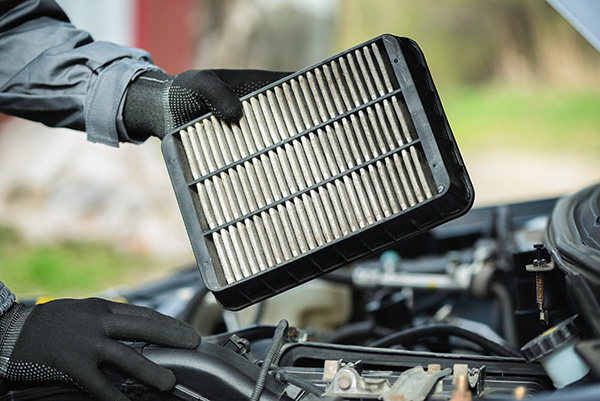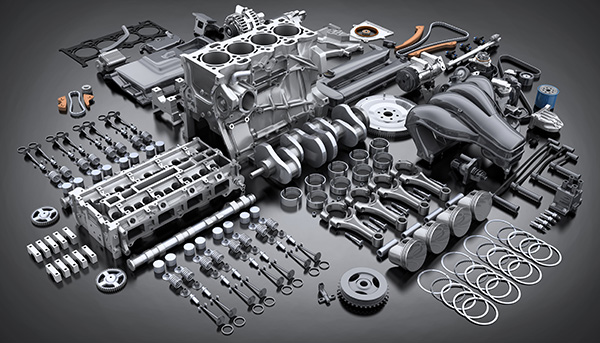Posted on 1/30/2026

Your engine breathes a lot more air than most people realize, and it does it every time you touch the gas. When that airflow starts getting restricted, the car usually does not fail instantly. It just starts feeling a little off in ways that are easy to blame on bad fuel, weather, or a random off day. The tricky part is that a clogged engine air filter can hide in plain sight. If you know the signs, you can catch it early and avoid the snowball effect where the car works harder than it needs to. Why A Dirty Engine Air Filter Shows Up In Weird Ways The engine air filter is supposed to trap dust and debris before it reaches sensitive components. Over time, the filter loads up, and airflow drops. Modern engines try to compensate by adjusting fuel and air calculations, so symptoms can feel subtle at first. Some drivers expect one obvious sign, but it often shows up as a collection of smaller changes. Think of it as the car getting slightly less cooperative, especially ... read more
Posted on 12/19/2025

A lot of drivers think about engine oil and brake pads, but almost never think about the fluid that actually moves the brakes. Brake fluid works quietly for years, then one day the pedal feels softer, the light comes on, or a line rusts out. Since this fluid literally transfers the force that stops your car, it deserves more attention than it usually gets. What Brake Fluid Actually Does When You Press the Pedal When you press the brake pedal, you are not directly squeezing the pads with your foot. You are pushing a piston in the master cylinder, which pressurizes brake fluid in sealed lines. That pressure travels through the fluid to calipers or wheel cylinders at each wheel, clamping the pads against the rotors or shoes against the drums. Because brake systems rely on pressure, the fluid has to be stable and incompressible. Fresh fluid gives you a firm, predictable pedal and consistent stopping power. As it ages and becomes contaminated, it starts to behave less li ... read more
Posted on 11/28/2025

Choosing parts is about more than price. The best replacement restores original performance, fits correctly the first time, and lasts through real-world driving. Here is how a smart parts decision gets made so repairs hold up and budgets stay predictable. What “Right Part” Actually Means The right part matches three things: fit, function, and specification. Fit means the mounting points, connectors, and clearances are exact. Function means the part performs like the original across temperature, load, and duty cycle. Specification means it meets the approvals the vehicle was designed around, from filtration and friction ratings to electrical output and software compatibility. When all three align, the result is reliable repair and fewer comebacks. OEM, OEM-Equivalent, and Aftermarket: How We CompareOEM (Original Equipment Manufacturer) Built to the automaker’s print. Strong choice for complex electronics, emissio ... read more
Posted on 10/31/2025

Fuel economy usually stays fairly steady unless something changes. So when you notice you're visiting the gas station more often than usual, and your driving routine hasn’t changed, that’s a sign your car might need attention. A sudden drop in MPG is more than just a budget concern. It’s often your car’s way of letting you know something’s not working as it should. Let’s take a closer look at what could be behind that fuel efficiency loss and what you can do about it. When MPG Starts Dropping Without Warning Sometimes the first clue is just a feeling. The tank doesn’t seem to last as long. The fuel gauge dips faster. If your vehicle has a trip computer, you might notice that the average MPG number has dropped by several points. Here are some other signs that often come along with it: Engine feels sluggish or rough Fuel smell near the vehicle after shutting it off Engine light is on Acceleration takes more effort Ro ... read more
Posted on 9/26/2025

Getting stuck in stop-and-go traffic is frustrating enough. But if your temperature gauge starts rising or steam appears from under the hood, things can quickly turn stressful. In a city like Houston, where traffic is common and heat lingers for much of the year, an overheating engine isn't unusual. What matters most is how you respond. Knowing what to do in the moment and what to check afterward will help you avoid long-term damage and expensive repairs. How to Tell When Your Car Is Overheating Some warning signs are subtle, like a temperature needle creeping toward the red. Others are more dramatic, including visible steam, strange smells, or warning lights on the dashboard. You might even notice the air conditioning suddenly stops blowing cold. When any of these signs appear, take them seriously. Continuing to drive while the engine is overheating can lead to warped cylinder heads, blown gaskets, or complete engine failure. What to Do When It Happen ... read more